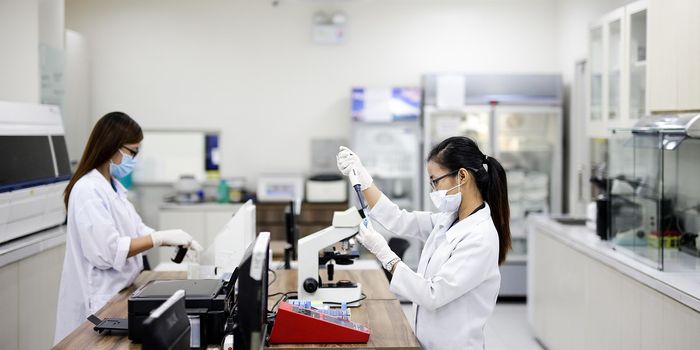Zebrafish Bacterial Gut Protein Delays Death by Septic Shock
At the University of Oregon, researchers identified a novel anti-inflammatory protein that is secreted by the common gut bacterium in zebrafish.
The protein, Aeromonas immune modulator (AimA), was found to reduce inflammation in the gut and delay death by septic shock. AimA is a mutual beneficial protein for both the bacterium and their host, the zebrafish.

"We used zebrafish as a model host because we could perform many tests and search in an unbiased way for new anti-inflammatory factors,” explains study co-author and professor of biology Karen Guillemin.
Results of the study were published in the journal eLife which sheds light on the role of resident microbes and the levels of an inflammatory response.
"One of the major questions about how we coexist with our microbial inhabitants is why we don't have a massive inflammatory response to the trillions of the bacteria inhabiting our guts," says Guillemin. "We set out to test whether gut bacteria actively secrete factors that prevent an excessive inflammatory response, which would be detrimental not only to the host but also to the bacterial residents.”
Using protein crystallography, researchers were able to identify the structural similarity of AimA to a class of proteins called lipocalins, which include other proteins that modulate inflammation in humans.
"That structural similarity suggested to us that the bacterial protein may function like the human protein" Guillemin said. "In particular, rather than doing something specific to counteract inflammation caused by one kind of bacteria, maybe it was doing something more generally to temper the host's immune response."
Researchers discovered that the AimA protein reduced inflammation but also induced a lethal inflammatory response, known as septic shock. However, what they also found was AimA could counteract the sepsis extending the lifespan of the zebrafish.
"The bacteria were experiencing this inflammation, which is detrimental to them," says Guillemin. "Inflammation involves the production of antimicrobial compounds like reactive oxygen species that are designed for clearing bacteria, so, now, a beneficial bacterium is going to be at a disadvantage if it's experiencing too much of this inflammatory response."
Watch this short video below to learn more about inflammation:
"Most studies of beneficial microbes have focused exclusively on the benefits to the host and have tended to find very generic microbial molecules, such as metabolic byproducts, as the mediators," she said. "The discovery of AimA is exciting because it is a very specific specialized product that a mutualist is making for maintaining that mutualism. I suspect there are many more of these mutualism factors to be found."
Findings of the research study are pertinent to drug discovery with applications of treating human diseases associated with excessive inflammation such as intestinal inflammation, including inflammatory bowel diseases, or used in the prevention of chronic inflammation associated with metabolic syndrome and sepsis.
Source: ScienceDaily, eLife








